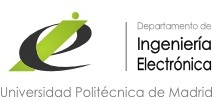Evaluation
As regards the methodology for assessing the students, three elements have been designed, although not proposed as exclusive mechanisms, they will adapt to the particular characteristics of each course:
- Evaluation based on an, oral or written, theoretical or practical examination.
- Evaluation based on exercises, work or presentations.
- Evaluation based on the continuous involvement of the student, either in classes, group discussions or seminars.
An ambitious proposal for the evaluation of the quality of the doctoral programme has also been designed in order to improve the supply in subsequent courses. This proposal will be initiated immediately in a plan which is summarized in a later section. The quality assessment programme is based on the following general tools:
- The Setting up of a Committee for the monitoring and evaluation of the quality of the PhD program and to oversee the process, analyze the results of the surveys, and generate suggestions for improvements that will be discussed by the PhD Committee of the Department.
- Conducting student surveys at the end of the semester in order to obtain measurements and perceptions of the quality of the teaching staff, subjects taught, resources used, etc.
- Conducting teacher surveys at the end of teaching period, to obtain an objective evaluation of the suitability of the methods used to achieve the final goals, measured at the same time as the assessment of students, and compile suggestions for improvement.
- Conducting student surveys from those who have obtained their PhD in order to obtain measurements on the overall perception of the program's quality, as well as suggestions for improvement.
The plan envisages the following milestones:
- The setting up of a Monitoring and Evaluation Committee for the quality of the Doctorado en "Sistemas Electrónicos" (DSE) Program.
- Development of surveys made by students and teachers at the end of every subject taught in the program each academic year.
- Development of the survey made by newly graduated PhD graduates.
- Development of an initial survey, to be sent to all students who have completed their PhD studies in previous programs \'TIC\' during the past five years, as a way of compiling an initial metric reference. Also a final survey of the PhD course will be sent to those PhD graduates who have graduated in the past five years.
- Development of end of course surveys.
- Preparation of an annual report, including results, suggestions for improvements and an action plan (every year in July).
As complementary measurements of teaching, there are additional elements that contribute to the student's education and their active participation in the research environment provided by the Department of Electronic Engineering:
- Specialized seminars \'extracurricular\', as mentioned, given by the faculty of the program itself and a selected set of external experts to complement the content-related aspects of the doctoral programme.
- Holding of talks and invited lectures, carried out by researchers and professionals with a recognized prestige, that will provide a close view to the state of art in different topics.
- Technical meetings in the format of research seminars, where the PhD students, at their various stages of advancement, present the progress of their research work (usually associated with their PhD thesis and within the framework of their research groups).
- Holding a disclosure day for research activities of the Department, where the researchers responsible for the main lines of R&D discuss their ongoing projects, with the aim of promoting the integration of new students and the generation of new ideas for carrying out supervised reserch work.
All in all, we have designed a teaching and evaluation methodology to ensure the proper teaching of the subjects contained in the proposed PhD program as well as an effective evaluation mechanisms of both. It involves the students and the quality of the program, supplemented by a series of activities that shape an efficient working environment for the faculty and students involved.

